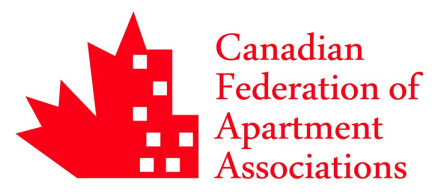Want to amplify your marketing returns and build a loyal customer base? Developing a strong brand identity can help you do both. Whether you’re an established midsized business or a burgeoning small company, it’s never too late to strengthen your brand identity. We attended the Canadian Federation of Apartment Associations conference with Sam Amin, marketing manager at Yardi, to learn more about creating a brand. What is a Brand Identity? Brand identity is more than your logo and color templates. Those are important, but your brand extends beyond what you can see and touch. At its foundation, a brand is a distinguishing mark, such a logo and other design choices. It tells us the source (company) behind a product (multifamily community). But as the “father of marketing” David Ogilvy explained it, the brand is “the intangible sum of a product’s attributes.” That means that your brand is also a set of associations connected to your business based on facts, emotions, and customers’ aspirations. How to Create Your Brand There is no need to reinvent the wheel. Amin recommends choosing from several branding formulas online to help you get started. Most formulas will require you to carefully articulate who you are and identify your customers and competitors. You’ll need to determine the type of community that you want to provide for your renters, physically and socially. As you work through each piece of the formula, be specific and authentic. Select messaging that feels natural even if (and especially if) it’s an unexplored angle for real estate. Your Brand—Everywhere, All the Time For the greatest impact, keep your brand in front of audience’s eyes. Be consistent with your messaging and steady with fresh marketing efforts that convey your messaging. “Use all your marketing tools including SEO,...
IoT in Multifamily
Takeaways from CFAA
During the Canadian Federation of Apartment Associations (CFAA) annual conference, attendees walked away with a powerful call to action: understand the role of the Internet of Things (IoT) in your business before implementing. Fulfilling this objective can lead to success for multifamily firms of all sizes. What is the Internet of Things? The IoT embodies a multitude of devices that are connected to the internet. These devices range from smartphones to home automation and even wearable fitness monitors. Such devices can be controlled remotely and interact with other devices. In many cases, devices connected to the internet also gather and store user data to contribute to machine learning. Masa Hoshino, product manager at Yardi, explained that three components drive change in the IoT on the consumer level: hardware, software and culture. Hardware, like a smart refrigerator, may use wireless connectivity to automatically set the time on the clock. Software, such as apps installed on that fridge, is designed to solve a problem and provide a better user interface such as peeking in when grocery shopping. Lastly, the convenience of internet connectivity has made it a necessity for consumers. Connectivity increases the perceived value and functionality of hardware and software—and a home. How Does the IoT Impact Real Estate? In real estate, consumer culture and corporate benefits demand the integration of the IoT in our properties. Smart homes offer convenience, entertainment, and the potential for lower utility bills. While a home with multiple smart features is desirable for modern renters, multiple apps to control those features is very undesirable. True efficiency entails a single, reliable app that connects residents to their smart homes and property management through a secure user portal. For property stakeholders, the IoT can also be used to promote greater efficiency and...
CFAA Conference
Transformative Tech
Yardi returned as title sponsor and presenter at the Canadian Federation of Apartment Associations’ (CFAA) Rental Housing Conference, Canada’s premier event for apartment managers which took place on May 14-16 in Vancouver, B.C. “Yardi is proud to support and participate in educational events that bring together real estate industry leaders and managers to help further growth and innovation for businesses of all sizes in evolving markets,” said Peter Altobelli, vice president and general manager for Yardi Canada. This year’s conference focused on game-changing technology for the apartment industry, and Yardi was excited to participate in four dynamic educational sessions. Altobelli joined a roundtable to discuss the present state and future of technology in the rental housing industry — and how property managers can prepare for disruption. Tech Round Table: How to Surmount Barriers to Technological Advances Altobelli joined industry leaders Darren Henry, president at National Efficiency Systems Inc., Jeremy Jackson, vice president of marketing at Killam REIT and Geoff Younghusband, vice president of residential properties at Osgoode Properties, to address barriers that impede property managers from adopting useful new technologies, and how to surmount them. They covered getting the information you need to make informed business decisions and how to encourage your team to accept change and new ways of accomplishing tasks in your organization. For managers, they discussed how to gain quick wins with new tools and convince owners about the value of technology to reduce costs and gain new operational efficiencies. Online Platforms, Resident Services, Payments and Blockchain: The Future in the Rental Market Yardi’s Regional Director of Canadian Sales, Heather Brady spoke about new cutting-edge technologies that are rocking the rental market — focusing on online platforms with resident services including payments —and was joined by David Janoawski, founder and CEO...
CFAA Highlights
Industry on the Move
Yardi Canada’s Peter Altobelli and Sam Jaishankar had the honor of speaking about key technology innovations impacting the real estate industry at the Canadian Federation of Apartment Associations (CFAA) Rental Housing Conference, June 6-9 in Toronto. The conference brings together leaders from the rental housing industry from across the country to discuss topics such as building and development, marketing, leasing, staffing and technology. Yardi participated in three sessions this year. Yardi is proud to sponsor industry events including the CFAA conference and participates in a variety of educational opportunities that help move the real estate industry forward. Property and Operations Management Apps Improving rental operations and solving problems using technology were the focus of this session. Pain points included processing payments, tracking maintenance, completing inspections and managing vendors. Panelists included Peter Altobelli, Vice President and General Manager, Yardi Canada; David Janowski, CEO, Pay Quad; Leonard Drimmer, CEO, Property Vista; and Andy Larson, VP of Business Development, HappyCo. Altobelli spoke about using mobile apps for more efficient property operations and how these tools help companies advance and take their services to the next level. Not only are mobile apps key to optimizing real estate business processes, but they are also critical to engage the next generation of employees who expect tech-forward workplaces. “We are starting to see a transition here in Canada with deploying new technologies to operations staff — be it maintenance or leasing or financial accounting. Consumers demand a quick turnaround in everything they do. They want to go online or use their mobile device to make a request or complete a transaction at their convenience, they expect quick responses and they want instant confirmation when things are done. For real estate, these customer demands require operational changes,” Altobelli said. Automating the Marketing Process...




